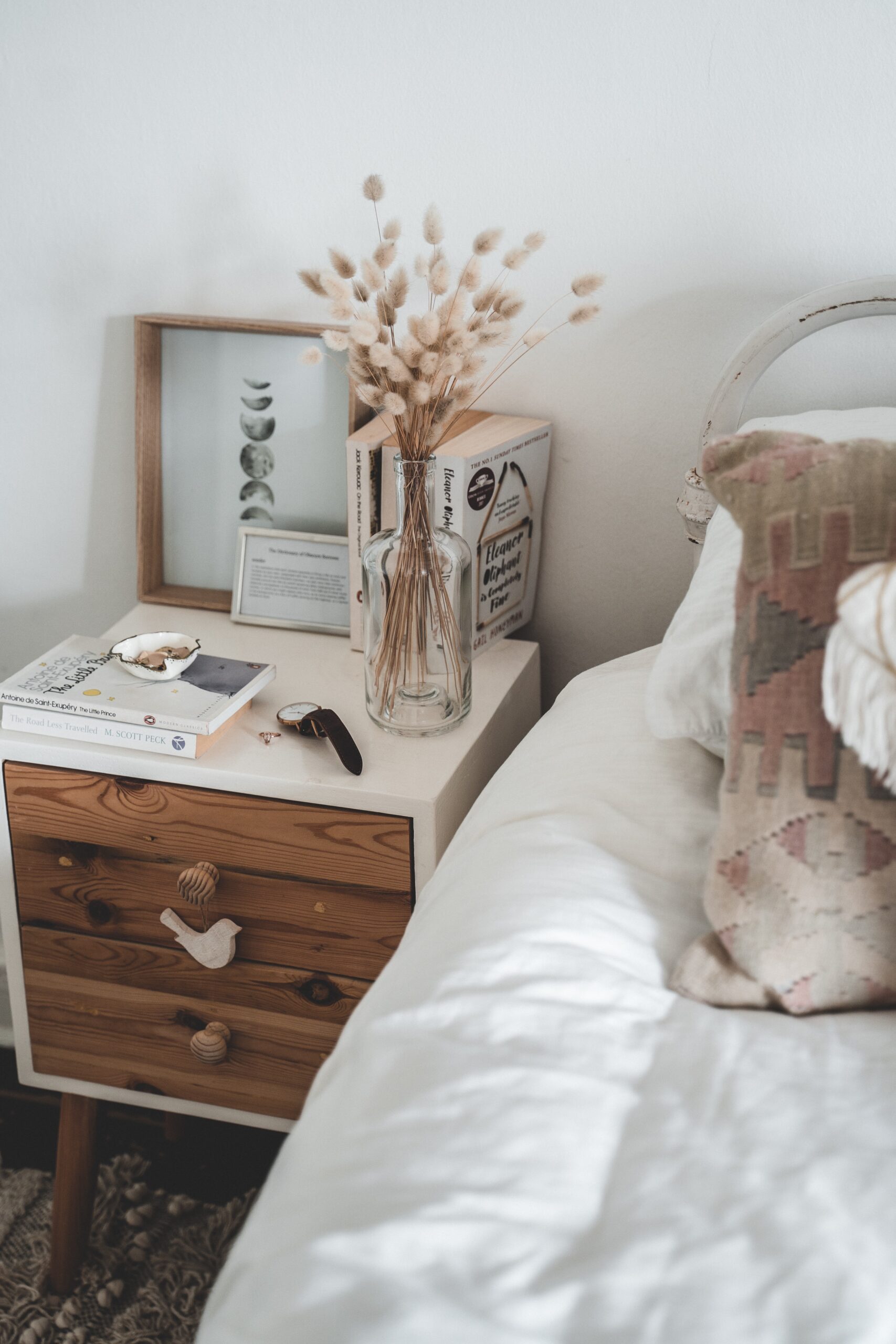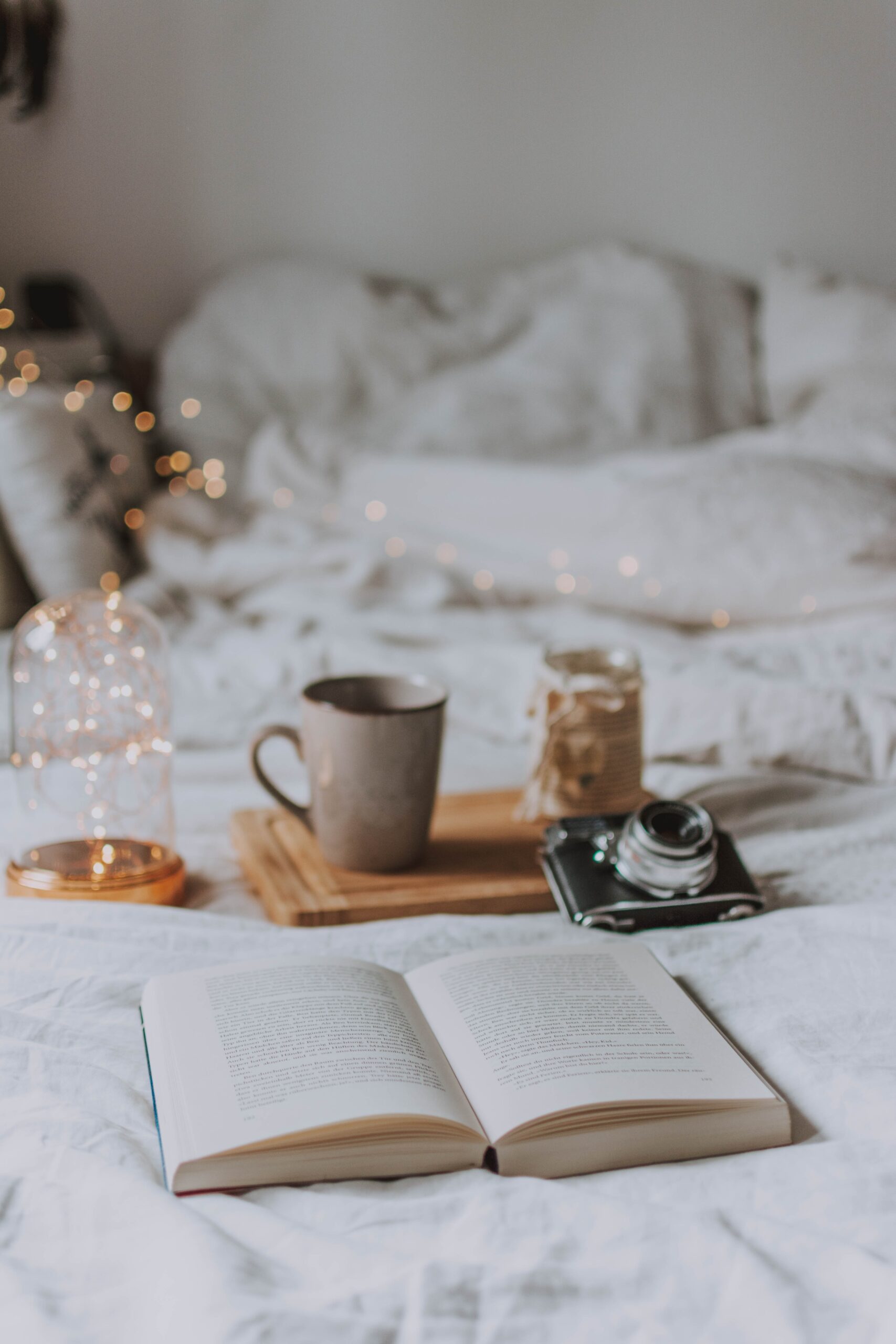Sometimes, it feels like you’re tired all day. But when bedtime finally rolls around, the dull ache of sleepiness seems to somehow magically disappear. A busy mind can feel impossible to wind down, especially with a million and one things keeping you up. But a good night’s rest is closer than you think by making some small adjustments. In fact, try these 10 things to help you get better sleep tonight!

1. Invest in a Comfy Mattress and Pillows
Your mattress and pillows are the unsung heroes of a good night’s sleep. A comfortable and supportive mattress tailored to your preferences can make a world of difference.
If you’re waking up with aches and pains, it might be time for an upgrade. Pair your mattress with pillows that provide the right level of support for your head and neck. Memory foam pillows are great for contouring to your unique shape, while down pillows offer a luxurious and soft feel.
2. Control the Lighting
Your circadian rhythm is a thing, and light plays a pivotal role in regulating your sleep-wake cycle. To create the ideal sleep environment, deck your space out in blackout curtains or shades to block out external light sources such as streetlights or the early morning sun.
Soft, warm lighting in the evening can also signal to your body that it’s time to wind down and prepare for rest.
3. Maintain the Ideal Temperature
The temperature of your bedroom can seriouslt affect your sleep quality. Research suggests that the optimal sleep temperature for most people falls between 60 to 67 degrees Fahrenheit.
Adjust your thermostat accordingly to create a comfortable sleep environment. You might also want to invest in cozy blankets or cooling sheets to further customize your sleep temperature.

4. Declutter Your Space
A cluttered bedroom can feel chaotic to your mind, making it harder to relax and fall asleep. Take some time to clean up your bedroom and put things in order. Remove any unnecessary items and organize your belongings.
5. Practice Relaxation Techniques
Engaging in relaxation practices before bedtime can help reduce stress and prepare your mind for sleep. Consider activities such as deep breathing exercises, progressive muscle relaxation, or guided meditation.
You can find plenty of apps and online resources to guide you through these techniques. Spend 10-15 minutes each night devoted to this, and you’ll likely find it easier to drift off into peaceful slumber.
6. Limit Screen Time
The blue light emitted by screens, whether it’s from your smartphone, tablet, or television, can interfere with your body’s production of melatonin, a hormone that regulates sleep.
To improve your sleep quality, make it a habit to avoid screens at least an hour before bedtime. Instead, go for for relaxing activities such as reading a physical book, practicing gentle yoga, or taking a warm bath.
These screen-free moments will help your brain transition from the stimulating world of technology to the calming world of sleep.

7. Sip on Sleep-Inducing Tea
Enjoying a soothing cup of tea before bedtime can be a great addition to your nighttime routine. Certain herbal teas are known for their calming properties.
Chamomile tea, valerian root tea, and lavender tea are excellent choices. These teas contain natural compounds that can help relax your mind and body, making it easier to fall asleep.
However, not all tea’s are created equal! Make sure to choose caffeine-free options and avoid teas like black tea or green tea.
8. Timing Matters
The timing of your meals can definitely influence your sleep quality. Try to not eat heavy or large meals close to bedtime, as they can lead to discomfort and indigestion.
Aim to finish eating at least two to three hours before you plan to go to sleep. This gives your body enough time to digest the food, reducing the likelihood of nighttime awakenings or discomfort.
9. Choose Sleep-Inducing Foods
Speaking of food, certain kinds contain nutrients that can promote sleep. Incorporating treats like almonds, turkey, and kiwi into your evening snacks or meals can be a delicious way to improve your sleep quality.
Almonds are rich in magnesium, which can help relax muscles and promote sleep. Turkey contains tryptophan, an amino acid that plays a role in sleep regulation. Kiwi is a source of antioxidants and serotonin, a neurotransmitter that supports a sense well-being and sleepiness.
10. Stay Hydrated (But Not Too Much!)
Dehydration can completely disrupt your sleep, leading to nighttime awakenings and discomfort. It’s important to stay hydrated throughout the day, but be mindful of your fluid intake in the evening.
To avoid waking up in the middle of the night for trips to the bathroom, aim to put down your beverage at least an hour or two before bedtime.
popular posts
- 1It’s Black Business Month, So Let’s Go Shopping and #BuyBlack!
- 2These Home Decor Items Will Instantly Make Your Space Look Outdated
- 3Black-Owned Home Decor Stores To Support Across the United States
- 4A Look Inside Elon Musk's Tiny $50,000 House
- 57 Black and Multicultural Designers To Follow For Design Inspo
Bedroom
Spaces
Whether it’s luxury or ease, every area of your home should be as fabulous and unique as you.

Ready for a Bedroom Makeover? Check Out These 8 Fabulous Buys
by Arielle Clay | January 19, 2023
FOLLOW ALONG ON INSTAGRAM
#homeandtexture
Find us on social for more home inspiration where culture, personal style, and sophisticated shopping intersect to help you create a home where you love to live.







